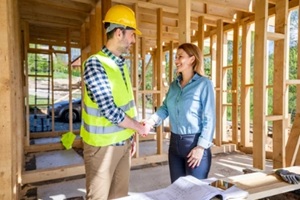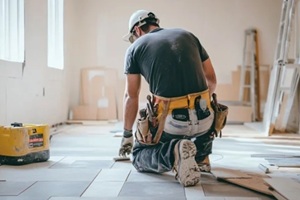
Home builders are some of the nation’s most integral workers. Without them, residential customers would have nowhere to call their own for themselves and their families. However, even the most well-intentioned home builders can run afoul of compliance and regulatory issues throughout the project. Home builder insurance can protect against such problems, but only if the contractors realize what types of policies to seek and how much coverage to purchase.
Regulatory compliance starts with knowledge, and the requirements for home builders will differ based on state and potentially even county. Always be sure to check your local regulations for the most specific details. However, the following types of insurance are generally recommended for baseline compliance and powerful protection for the company.
Which Insurance Types are Mandatory?
Home builders must carry at least some insurance coverage in most locations to get the permits they need to complete their work. While the specific policy inclusions can vary based on numerous factors, such as location, value of the build, and more, the insurance policies that every building team needs are:
General Liability
Most states require that every home builder be covered under a general liability insurance policy for regulatory reasons. Without this type of protection, third parties are not protected from the harm a home builder may cause. For instance, if a contractor carrying plywood spins suddenly and strikes a passerby in the head, general liability would pay for that person’s medical care.
Similarly, suppose the contractor broke a car window in the same manner. In that case, this type of insurance can pay for the damages. General liability protects uninvolved parties from home builder accidents.
Workers’ Compensation
Unless a home builder owns the company and has no employees or subcontractors, every builder needs workers’ compensation insurance. This protection pays for the medical treatment of injured workers while carrying out job responsibilities.
Whether they need stitches for a cut caused by a saw on-site or they fall from a roof and need extensive rehabilitation to regain normal movement, workers’ compensation can help. It can cover medical bills, rehabilitation costs, and even the cost of income while they recover.
Best Home Builder’s Coverage
Aside from general liability and workers’ compensation, the types of coverage required for compliance reasons can vary. In general, recommended policies to keep any home builder in compliance with local regulations (and protect the company at the same time) will include:
Errors & Omissions
Perhaps the most essential type of compliance coverage behind general liability and workers’ comp, E&O insurance (also called professional liability) protects builders and, by extension, homeowners from mistakes made during construction.
For instance, if a builder accidentally installed venting from the dryer using a duct straightaway that exceeded the local regulatory requirements, two issues may arise. The homeowners must address the issue, and the vent may be dangerous or even catch fire. E&O insurance can cover the cost of redoing the venting.
Equipment
Many locations do not require equipment insurance for compliance reasons, but it is still a wise investment for home builders. A contractor who must delay the project timeline because their tools break or are stolen may face significant financial consequences and harm to their reputation. Additionally, some types of equipment can be especially expensive, making them particularly challenging to replace or fix.
Builder’s Risk

Builder’s risk insurance is a type of overarching coverage that often includes multiple types of protection, including some mentioned herein. Home builders benefit significantly from a builder’s risk policy because it streamlines compliance. All insurance protection is within a single policy rather than spread across multiple.
However, reading the builder’s risk policy details is essential to establish that it includes everything the specific building company requires. Additionally, basic builder’s risk insurance may not necessarily encompass all local regulatory needs. Always check the details and work with an insurance agency knowledgeable in local requirements to complement the business needs.
Comply With Regulations While Protecting Your Business
Every home builder has many considerations, from securing business to keeping tools safe and completing projects on time. However, it is essential not to ignore your local area’s regulatory and compliance requirements.
The professionals at Burton & Company can help your business stay aligned with regulations to avoid compliance issues while simultaneously protecting your business and maintaining a reputation of confidence and trust with customers. Contact Burton & Company today to discuss the insurance types your business requires and whether these can be bundled under a builder’s risk policy.

